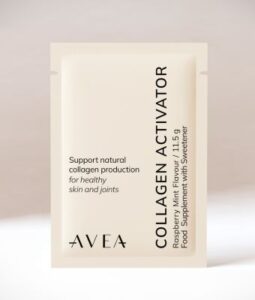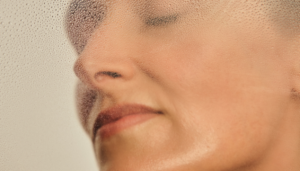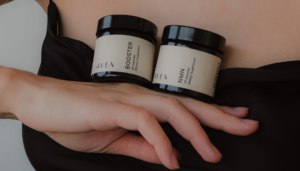In the quest for longevity, choosing the right sweetener is just as crucial as Dani Olmo’s heroic last-minute save for Spain that secured their victory in the finals of the Euro 2024 football tournament (Sorry, England fans, football is not coming home).
Now, we all know the dangers of sugar, but should we also be cautious about the alternatives we use? Smart people would say yes.
Recently, Stevia, a natural sugar alternative, has been gaining fame on social media for its potential health benefits compared to sugar.
Stevia rebaudiana Bertoni, a member of the Asteraceae family, is the only Stevia species that produces sweet steviol glycosides. This plant, native to South America, particularly Brazil and Paraguay, is also known as “Honey Leaf” or “Sweet-Leaf.”
Surprisingly, Stevia is 200–300 times sweeter than table sugar. It is also a non-caloric sugar substitute that seems to be safe for people with diabetes, high blood pressure, and obesity.
Read on to understand why we chose Stevia over table sugar in the Avea Collagen Activator.
This article explores everything you need to know about Stevia, so you can make more informed choices about your health along your longevity journey.
In this article
FREE anti-ageing guide

- Master the science of rejuvenation.
- Apply proven tips to turn back the clock.
- Transform your health with top longevity specialists.
What is Stevia?
Stevia, scientifically known as Stevia rebaudiana Bertoni, is a plant native to South America, particularly found in Brazil and Paraguay.
Known locally as “Honey Leaf” or “Sweet-Leaf,” it has been used for centuries by indigenous peoples to sweeten beverages, and as a traditional medicine.
The sweetening components of Stevia are primarily due to compounds called steviol glycosides, which include stevioside and rebaudioside A, found in the leaves.
How is Stevia extracted?
The extraction process of Stevia involves several steps to ensure the pure sweet compounds are isolated from the plant.
- The leaves are first dried, and then steeped in water to release the steviol glycosides.
- The liquid extract is filtered to remove leaf particles, and treated with activated carbon to eliminate other organic matter.
- This is followed by an ion exchange treatment to remove any remaining minerals and metals, resulting in a concentrated Stevia leaf extract.
- This extract is then spray-dried to produce a fine powder or further processed into liquid form.
What is the historical background of Stevia?
Stevia has been known to people since ancient times. The Guarani Indians called Stevia “Ka-a He-e,” meaning “sweet grass,” and used it to savour bitter drinks such as mate.
There are reports that Stevia was already known in Spain in the 16th century, but other Europeans only learned about the plant in the late 19th century, thanks to botanist Moises Santiago Bertoni.
Bertoni renamed it from Eupatorium rebaudianum to Stevia rebaudiana. In 1901, Bertoni noted that a few leaves of Stevia grass were enough to sweeten a large cup of tea. By the 1920s, Stevia was being cultivated in large quantities on plantations in Brazil and Paraguay.
In 1931, French chemists Briedel and Lavieille isolated the glycoside responsible for Stevia’s sweetness, naming it stevioside. During World War II, Stevia gained popularity in the United Kingdom due to sugar shortages and rationing.
The 1970s saw Stevia introduced in Japan, where research into its health benefits began. Japan remains one of the major producers of Stevia today.
In 2013, the Coca-Cola Company started producing drinks sweetened with Stevia, reducing calories by 30%. Stevia is now commercially cultivated in many countries worldwide, including Ukraine.
Is Stevia an artificial sweetener?
No, Stevia is a natural sweetener. It is often compared to artificial sweeteners like aspartame, sucralose, and saccharin.
One of the key differences is that Stevia is derived from the leaves of a plant, whereas artificial sweeteners are chemically synthesised in laboratories.
This natural origin makes Stevia an appealing choice if you are seeking a more organic option in your diet.
Artificial sweeteners have also been scrutinised for their potential health risks and long-term effects. Whilst they are also non-caloric, some studies have suggested possible negative impacts on metabolism, gut health, and even links to certain diseases.
On the other hand, Stevia has been found to have fewer adverse effects, and is generally recognised as safe by major health organisations, including the FDA.
What are the different forms of Stevia?
Stevia is highly versatile, and can come in various forms to suit different needs. The most common forms include:
- Powdered Stevia: This is one of the most widely used forms, perfect for sprinkling on cereals, fruits, and other foods. It can also be used in baking, though it’s important to adjust quantities since Stevia is much sweeter than sugar.
- Liquid Stevia: Available in small bottles with droppers, liquid Stevia is ideal for sweetening beverages like coffee, tea, and smoothies. It can also be used in recipes where a liquid sweetener is preferable.
- Stevia extracts: These highly concentrated forms of Stevia are often used in food manufacturing and can be found in products like yoghurts, candies, and sodas. They provide intense sweetness with minimal usage.
- Dissolvable tablets: These are convenient for on-the-go use, perfect for sweetening hot beverages while travelling.
- Stevia blends: These products combine Stevia with other sweeteners or bulking agents like erythritol or maltodextrin. They are designed to mimic the texture and volume of sugar, making them suitable for baking and cooking in a 1:1 ratio.
Is Stevia healthy?
1. Zero calories
Stevia contains zero calories, making it an excellent choice if you’re looking to maintain a healthy weight. By replacing sugar with Stevia, you can significantly reduce your overall caloric intake without sacrificing sweetness your tongue (or brain) seeks. Studies have shown that Stevia can help in weight loss [1] and prevent weight gain by lowering the number of calories consumed daily, promoting healthier eating habits.
2. Blood sugar control
Stevia is beneficial for those with diabetes, prediabetes, or those simply monitoring their blood sugar levels. Unlike sugar, Stevia does not cause a spike in blood glucose levels. Its sweetening compounds, steviol glycosides, pass through the body without affecting blood sugar [2]. Research has demonstrated that Stevia can improve insulin sensitivity and reduce post-meal blood sugar levels.
3. Dental health
Stevia does not contribute to dental problems like cavities and tooth decay. Unlike sugar, it does not feed the bacteria in the mouth that cause plaque. By using Stevia instead of sugar, you can enjoy sweet foods and drinks without increasing your risk of dental issues, making it a tooth-friendly alternative [3]. This is because of Stevia’s significant antibacterial effects in the oral cavity that inhibit the growth of bacteria that cause dental caries.
4. Antioxidant properties
Stevia is rich in phenolic compounds that have strong antioxidant properties, helping combat oxidative stress caused by free radicals. These antioxidants can prevent chronic diseases like cancer, obesity, diabetes, and neurodegenerative diseases by neutralising free radicals and reducing systemic inflammation, making Stevia a promising therapeutic agent.
5. Anti-cancer effects
Research has shown that Stevia compounds, such as steviol and stevioside, can inhibit the proliferation of cancer cells and induce apoptosis [4]. Stevioside has been found to reduce the viability of colon cancer cells and inhibit DNA synthesis. Stevia’s anti-cancer properties make it a potential chemotherapeutic agent for cancer treatment and prevention.
Reverse your age by 6.5 years like Ibrahim

- Explore the secrets behind Ibrahim’s transformation.
- Discover simple, proven strategies to improve vitality.
- Understand the role of supplements in reversing biological age.
6. Anti-inflammatory and bactericidal actions
Stevia has anti-inflammatory and bactericidal properties, inhibiting pathogenic bacteria and reducing inflammation [5]. It can be used to treat immune diseases like rheumatoid arthritis and lupus. Stevioside hinders pro-inflammatory cytokine production, making Stevia beneficial for managing inflammation and bacterial infections.
7. Anti-diabetic actions
Stevia has been used traditionally to treat diabetes and hyperglycemia. Modern research supports its anti-diabetic properties, showing that Stevia can enhance insulin production, improve insulin sensitivity, and reduce blood glucose levels. Stevia’s interaction with TRPM5 channels in pancreatic β-cells promotes insulin secretion, making it effective in diabetes management [6].
8. Anti-hypertension properties
Stevia can help manage high blood pressure, a major risk factor for heart disease. Studies have shown that stevioside reduces both systolic and diastolic blood pressure in hypertensive rats and humans. Its hypotensive effects, combined with its ability to induce diuresis and natriuresis, make Stevia beneficial for controlling hypertension [7].
9. Obesity
Stevia supports weight management and reduces obesity-related complications. Studies have shown that Stevia consumption decreases body weight gain, improves lipid profiles, and enhances antioxidant defences [8]. Its ability to control calorie intake without increasing hunger makes Stevia an effective tool in combating obesity.
10. Renal function
Stevia has shown promising results in supporting renal function. It induces systemic and renal vasodilation, diuresis, and natriuresis. Research indicates that Stevia can improve biochemical parameters in patients with chronic kidney disease, and may help manage conditions like polycystic kidney disease, making it beneficial for kidney health [9].
Why we chose Stevia instead of sugar in our Collagen Activator
At Avea, we believe in enhancing your health and longevity with every product we create. That’s why we’ve chosen Stevia as the sweetener in our Collagen Activator.
Clinically proven results in 1 month: 100% vegan

- Boost your natural collagen synthesis.
- Enhance skin hydration and smoothness.
- Promote healthy skin, bones, and joints.
Stevia is a natural, zero-calorie sweetener that perfectly complements our commitment to providing effective, longevity supplements for your daily routine.
Unlike sugar, Stevia doesn’t spike blood sugar levels, making our Collagen Activator ideal for everyone, including those managing diabetes or prediabetes.
The Collagen Activator has been proven to be 4x more effective than standard collagen supplements. Our patent-pending blend of amino acids, Colgevity™, is combined with highly potent antioxidant Astaxanthin, natural vitamin C from Acerola Cherries, and longevity-enhancing Calcium Alpha-Ketoglutarate (CaAKG), to provide rejuvenation from cells to skin.
Stevia’s natural sweetness allows us to maintain the purity and potency of our Collagen Activator, so you get the maximum benefit without unnecessary artificial sweeteners.
Our Collagen Activator was tested in a clinical trial with 58 participants at Hautwerk Clinic in Zurich. After one month, skin texture improved by 18% and hydration levels increased by 91%. In 90 days, skin elasticity improved by 6%.
Using Visia, Corneometer, and Cutometer analyses, we validated the efficacy of our ingredients and their dosage. Our evidence-based approach, tested by leading dermatology experts, reaffirms our commitment to advanced longevity solutions.
With Stevia, you can enjoy the transformative benefits of our Collagen Activator—improved skin hydration, enhanced texture, and increased collagen production—without compromising on your health. It may even improve your biological age.
What are the potential risks and side effects of Stevia?
Whilst Stevia offers many health benefits, moderation is essential. Some people may experience digestive issues like bloating and gas, and Stevia might impact gut bacteria, though more research is needed in this area.
If you have specific health conditions, such as digestive disorders or diabetes, consult a healthcare provider before using Stevia. Balance is always key.
What are the health risks of table sugar?
- Table sugar, or sucrose, is high in calories, and contributes significantly to weight gain and obesity when consumed in excess.
- It has a pronounced impact on blood sugar and insulin levels, causing rapid spikes in blood glucose, followed by sharp drops. These fluctuations can lead to insulin resistance and the development of type 2 diabetes.
- It might be sweet, but it can also take a toll on your skin, resulting in pimples, dryness, sagginess, fine lines, and wrinkles. Meaning, sugar is secretly ageing your skin.
- Sugar is also a major culprit in dental problems, feeding harmful bacteria in the mouth that cause plaque formation, cavities, and tooth decay.
- The most dangerous health risks of table sugar are its long-term consequences. High sugar consumption is linked to chronic conditions like diabetes, heart disease, and metabolic syndrome.
- Excessive sugar intake is also associated with increased risks of inflammation, cognitive decline, dementia, and Alzheimer’s disease, significantly impacting quality of life and increasing mortality risk.
Is Stevia better than sugar?
Now comes the most awaited question: Is Stevia really a better alternative to sugar? For high-purity Stevia, the answer is yes. For refined versions blended with fillers like maltodextrin, not really.
When choosing Stevia products, always check the labels. Many commercial Stevia products are mixed with other substances that can decrease their health benefits.
Some additives can alter the properties of Stevia, making it less advantageous than pure Stevia extract. Highly refined extracts can further increase cravings for sweet foods.
According to the Joint FAO/WHO Expert Committee on Food Additives, the acceptable daily intake for steviol equivalents is 4 milligrams (mg) per kilogram of body weight.
Stevia is much sweeter than table sugar, requiring smaller quantities to achieve the same level of sweetness, and often has a slight licorice-like aftertaste.
Unlike sugar, Stevia also does not impact blood sugar levels or contribute to weight gain, making it a better option for those managing diabetes or obesity.
But, even if Stevia might be a healthier choice than sugar, you should use it in moderation.
We chose high-purity Stevia for the Avea Collagen Activator as a sweetener. It enhances our product’s health benefits without compromising on taste or quality, and avoids the health risks that come with table sugar and other sugar alternatives.
Stabilise your glucose levels with expert advice

- Learn how to reduce blood sugar spikes.
- Discover how to optimise metabolic health.
- Easy-to-implement tips that millions are following.
References














